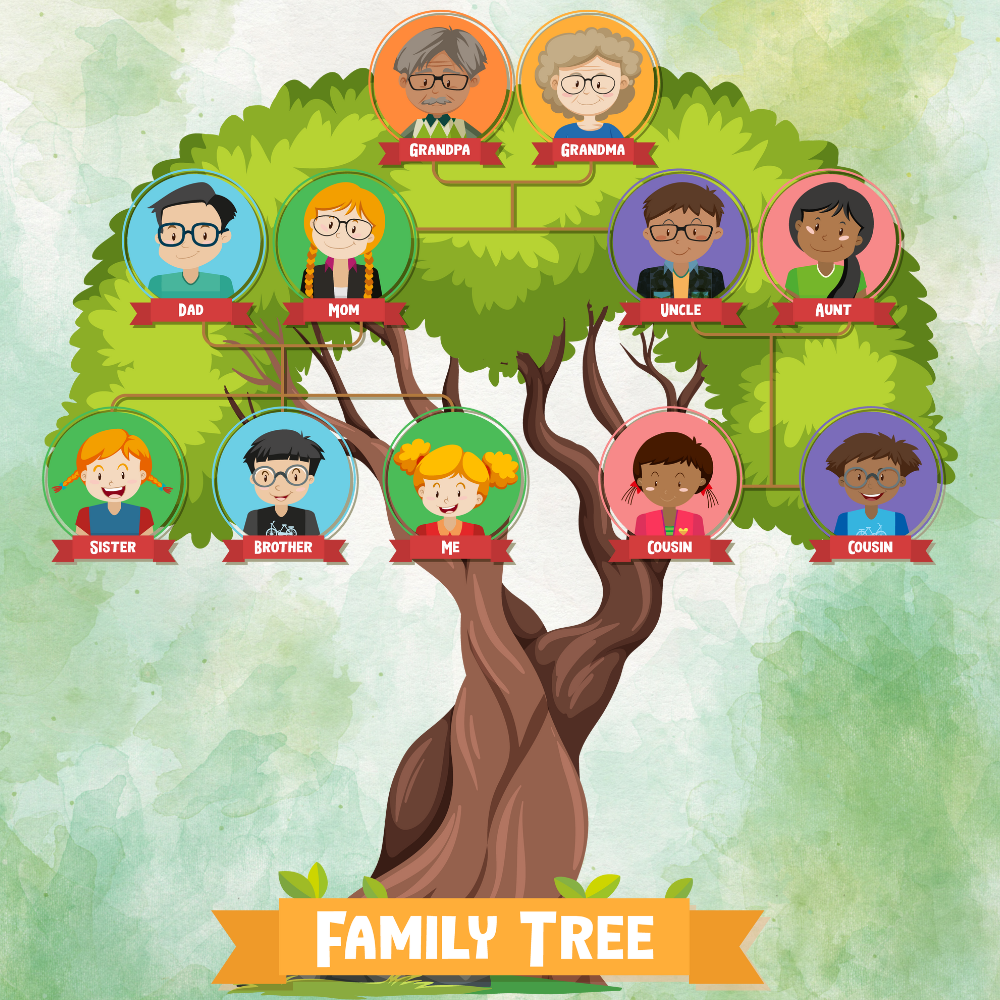Aunt
Definition
Aunt is a noun that refers to the sister of one's parent or the wife of one's uncle. It is used as a term to denote a familial relationship in extended families.
Parts of Speech
- Noun
Pronunciation
American English
- IPA Pronunciation: /ænt/ or /ɑnt/
- Respelling: ant or ahnt
British English
- IPA Pronunciation: /ɑːnt/
- Respelling: ahnt
Etymology
The word "aunt" originates from the Old French word "ante" or "aunte," which derived from the Latin "amita," meaning "father’s sister." The term has been in use in English since the 13th century to denote a female relative related through one's parent.
Derivatives
- Auntie (noun)
- Aunthood (noun)
- Great-aunt (noun)
- Grand-aunt (noun)
- Aunty (noun)
Synonyms
- Relative
- Kin
- Family member
Antonyms
- None
Usage
The noun "aunt" is used to refer to a familial relation, specifically the sister of one’s parent or the wife of one’s uncle. For example, "My aunt is visiting this weekend," or "She is very close to her aunt."
Related Terms
- Uncle: The brother of one’s parent or the husband of one’s aunt.
- Cousin: The child of one’s aunt or uncle.
- Nephew/Niece: The child of one’s sibling, for whom one is an aunt or uncle.
Detailed Definitions
Noun
- The sister of one's father or mother: Refers to a female relative directly related to one’s parent as a sibling.
- Example: "Her aunt always sent her birthday cards."
- The wife of one’s uncle: Refers to a female relative by marriage to one’s uncle.
- Example: "His aunt and uncle live nearby."
aunt



🇨🇳 Mandarin (Simplified Chinese)
- 阿姨 (maternal aunt or generally used for younger aunts)
- IPA: /aː jiː/
- Respelling: ā-yí
- 姑妈 (paternal aunt)
- IPA: /ɡuː maː/
- Respelling: gū-mā
🇮🇳 Hindi
- मामी (paternal aunt)
- IPA: /maːmiː/
- Respelling: māmī
- चाची (maternal aunt)
- IPA: /ʧaːʧiː/
- Respelling: chāchī
🇪🇸 Spanish
- Tía (general term for aunt)
- IPA: /ˈtia/
- Respelling: tía
🇫🇷 French
- Tante (general term for aunt)
- IPA: /tɑ̃t/
- Respelling: tante
🇸🇦 Modern Standard Arabic
- خالة (maternal aunt)
- IPA: /ˈxaːlə/
- Respelling: khāla
- عمة (paternal aunt)
- IPA: /ˈʕam.mah/
- Respelling: ʿammah
🇧🇩 Bengali
- খালা (maternal aunt)
- IPA: /kʰala/
- Respelling: khala
- পিসি (paternal aunt)
- IPA: /pisi/
- Respelling: pishi
🇷🇺 Russian
- Тётя (general term for aunt)
- IPA: /ˈtʲotʲə/
- Respelling: tyotya
🇵🇹 Portuguese
- Tia (general term for aunt)
- IPA: /ˈti.ɐ/
- Respelling: tia
🇮🇩 Indonesian
- Bibi (general term for aunt)
- IPA: /ˈbibi/
- Respelling: bibi
🇩🇪 German
- Tante (general term for aunt)
- IPA: /ˈtante/
- Respelling: tante
🇯🇵 Japanese
- おば (general term for aunt)
- IPA: /oː.ba/
- Respelling: oba
🇻🇳 Vietnamese
- Dì (maternal aunt)
- IPA: /zi˨˩/
- Respelling: dì
- Cô (paternal aunt)
- IPA: /kow˩˧/
- Respelling: cô
🇰🇷 Korean
- 이모 (maternal aunt)
- IPA: /i.mo/
- Respelling: imo
- 고모 (paternal aunt)
- IPA: /ko.mo/
- Respelling: komo
🇹🇷 Turkish
- Hala (maternal aunt)
- IPA: /haː.laː/
- Respelling: hala
- Teyze (paternal aunt)
- IPA: /tejze/
- Respelling: teyze
🇵🇰 Urdu
- خالہ (maternal aunt)
- IPA: /xaːlaː/
- Respelling: khāla
- پھوپھی (paternal aunt)
- IPA: /pʰupʰiː/
- Respelling: phuphī





